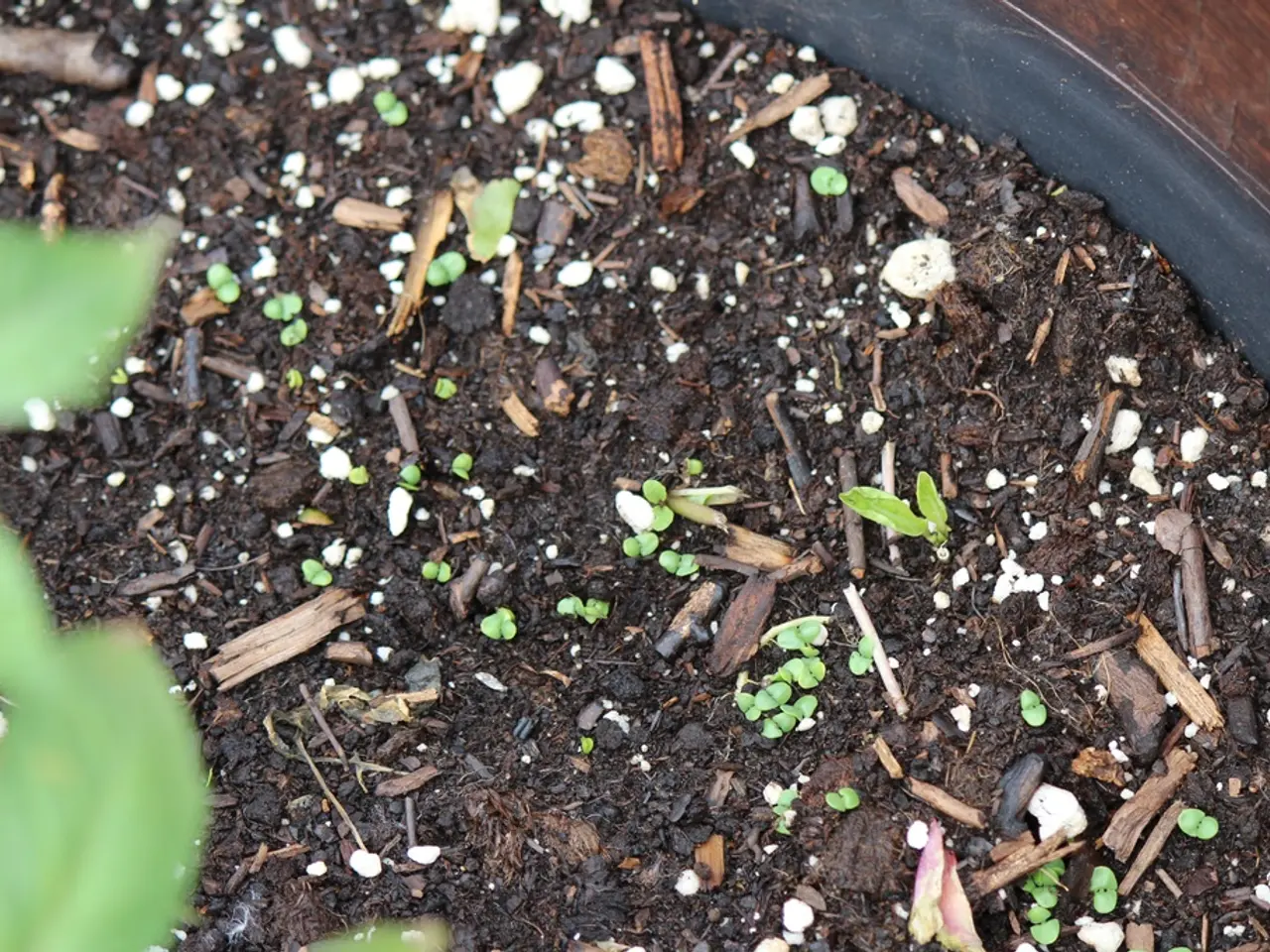Sulfur's Journey: Vegetation, Earth, and Crucial Nourishments
Sulfur, a little-known yet essential nutrient, plays a crucial role in the growth and health of plants, as well as the fertility of the soil. This versatile element is vital for various biochemical and physiological processes in plants and significantly impacts soil fertility.
In the realm of plant growth, sulfur serves as a key component in the formation of amino acids such as cysteine and methionine, which are building blocks of proteins. This is essential for plant growth and development, influencing enzyme production and overall metabolism. Adequate sulfur nutrition can also enhance the quality of grain and other crop parts, potentially improving feed value.
Sulfur contributes to plant defense mechanisms, helping plants resist pathogens and pests. In the event of sulfur deficiency, symptoms such as yellowing of younger leaves, sometimes with distinctive interveinal striping, may appear, particularly in crops like corn.
When it comes to soil health, sulfur is involved in critical nutrient cycles that are essential for plant nutrition. Sulfur availability affects the activity of soil microbial communities that facilitate nutrient transformations and availability to plants. The transformation of sulfur compounds in the soil impacts soil fertility and plant nutrient availability. Sulfur can also influence the availability and uptake of other nutrients, contributing to balanced soil nutrition.
Sulfur fertilization may increase sulfur concentration in plant tissues and sometimes yield, but its deficiency is not always widespread. Users are advised to monitor for sulfur deficiency symptoms and consider soil and tissue testing to determine sulfur needs.
In summary, sulfur is indispensable for protein synthesis, crop quality, and plant defense, while also maintaining soil fertility and microbial health. This makes it a foundational nutrient for sustainable plant growth and agriculture. From amino acid formation to plant defense, and from soil nutrient cycling to balanced soil nutrition, sulfur's role in the ecosystem is undeniably significant.
References: [1] Snyder, R. E., & Kruger, J. A. (2016). Sulfur nutrition of crops. In Crop Nutrient Management (pp. 249-276). Academic Press. [2] Cai, Z., & Huang, Z. (2018). Sulfur cycling in terrestrial ecosystems: A review. Environmental Pollution, 240, 508-520. [3] Singh, B., & Jain, S. K. (2018). Role of sulfur in plant growth and development. Journal of Plant Nutrition and Soil Science, 181(1), 1-11. [4] Lopez-Bucio, M., & Farre, N. (2017). Sulfur in agriculture: From the field to the consumer. Journal of Plant Nutrition and Soil Science, 180(1), 1-11. [5] Kruger, J. A., & Tinker, P. B. (2018). Sulfur nutrition and the regulation of plant defense. Trends in Plant Science, 23(6), 367-378.
- In the health-and-wellness and skin-care sectors, sulfur's role extends beyond soil and plants, as it has been known for promoting healthy skin by managing oil production and treating acne.
- The scientific community is constantly researching the impact of sulfur on various biochemical processes, with environmental-science experts focusing on sulfur cycles within terrestrial ecosystems.
- Connecting the dots between food and fitness, sulfur is a crucial component of human nutrition, particularly in the formation of the amino acid methionine, essential for protein synthesis, fitness-and-exercise performance, and healthy aging.
- The advent of science-driven health-and-wellness practices has led to a growing interest in the link between environmental science and human health, with an emphasis on the role of sulfur in both soil nutrition and human nutrition.








